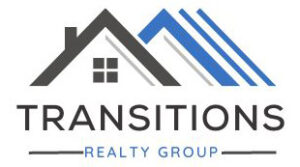
What Are Closing Costs?
When you’re buying a home, one of the things you’ll need to factor in is closing costs. Closing costs are the fees associated with completing the purchase of your home, and they can vary depending on where you’re buying and who’s involved in the transaction. Typically, closing costs include the cost of a home inspection, appraisal, lender fees, and more.
How Much Are Closing Costs?
When buying a home, it’s essential to know the closing costs. These are fees associated with the property purchase, which can vary widely from state to state.
In general, closing costs will run between 2% and 5% of the home’s purchase price. So, if you’re buying a home for $200,000, you can expect to pay between $4,000 and $10,000 in closing costs.
Of course, this is just a general rule of thumb – there may be some variation depending on the particular circumstances of your purchase. But it’s vital to be aware of these costs to factor them into your budget.
Can You Finance Closing Costs?
Many homebuyers are surprised to learn that they’re responsible for paying the closing costs associated with processing and finalizing their home loan. In most cases, these costs are out-of-pocket, meaning they’re not incorporated into your home loan. However, some lenders make exceptions, financing your closing costs at a much higher interest rate.
Financing your closing costs means you’ll pay considerably more over time than you would if you paid the fees in cash on closing day. For this reason, it’s generally advisable to avoid financing your closing costs if possible.
Can You Negotiate Buyer Closing Costs with the Seller?
Home buyers often assume that they will be responsible for paying all their closing costs. However, it may be possible to convince the seller to pay part or all of them in some cases.
Negotiating closing costs with the seller is more likely to be successful in a buyer’s market when sellers may be more motivated to close the deal. A buyer’s market is when there are more homes for sale than buyers. A buyer’s market typically happens when interest rates are high, or the economy is weak.
In a seller’s market, the opposite is true – there are more buyers than homes for sale. A seller’s market usually occurs when interest rates are low, and the economy is strong. If you ask the seller to pay your closing costs in a seller’s market, they may be less likely to agree, as they will likely receive multiple offers and can choose the most advantageous one.
Can You Negotiate Buyer Closing Costs with the Seller?
When you’re shopping for a mortgage, it’s important to compare not just interest rates but also closing costs. These fees can add up, so knowing what you’re looking at before applying is helpful.
Many of the fees charged by lenders are negotiable, so it’s always worth asking if there’s room to lower the price. Some of the most common lender-related closing costs include application fees, credit check fees, loan origination fees, and more.
By shopping around and comparing estimates from several lenders, you’ll position yourself better to negotiate a lower price. If you have good credit and a solid financial history, you may be able to get some, or all, of the closing costs waived. It never hurts to ask, so raise the issue with your lender before you sign on the dotted line.
A List of Common Closing Costs
Closing costs will vary depending on your location and circumstances, but here’s a list of the most common ones.
Application fee: A fee to cover the cost of processing your loan application. The application fee may also be called a “processing fee.”
Credit check: A fee charged by the lender to cover the cost of running a credit check on you.
Underwriting: Underwriting is verifying your financial history and ensuring that you meet the lender’s standards for borrowing.
Loan origination: The lender charges a loan origination fee for originating, or creating, your loan.
Real estate attorney: In some cases, the buyer must hire an attorney to help with the legal aspects of buying a home. If so, their fees will be included in your closing costs
Appraisal: The appraisal is used to determine the value of the property and ensure that it meets the lender’s standards for collateral.
Home inspection: The home inspection is used to identify any potential problems with the property that could make it a risky investment.
Title insurance: Title insurance protects the lender against any claims that may arise from problems with the property’s title.
Homeowner’s Insurance: Homeowner’s insurance is usually required by most lenders and protects the property against damage
Flood and fire insurance: The lender may require flood and fire insurance if the property is located in a high-risk area.
Private mortgage insurance: PMI is required if you’re putting less than 20% down on the property.
Property taxes: Your property taxes are paid to the government and are based on the value of the property.
Homeowner’s association dues: If the property is located in a community with a homeowner’s association, you’ll be responsible for paying dues.
Points: Points are a one-time fee that you can pay to lower your interest rate. Each point is equal to 1% of the loan amount.
Conclusion
Closing costs are the fees charged by lenders and other professionals involved in the home-buying process. They can vary widely, depending on your location and circumstances, but typically include items such as application fees, credit check fees, loan origination fees, and more. Many of these costs are negotiable, so it’s always worth asking if there’s room to lower the price.
Shopping around and comparing estimates from several lenders is the best way to ensure that you’re getting a good deal on your mortgage. It may also be possible to negotiate closing costs with the seller.
Talk with your real estate agent today for more information on buyer closing costs and how you can save money on the purchase of your new home.

